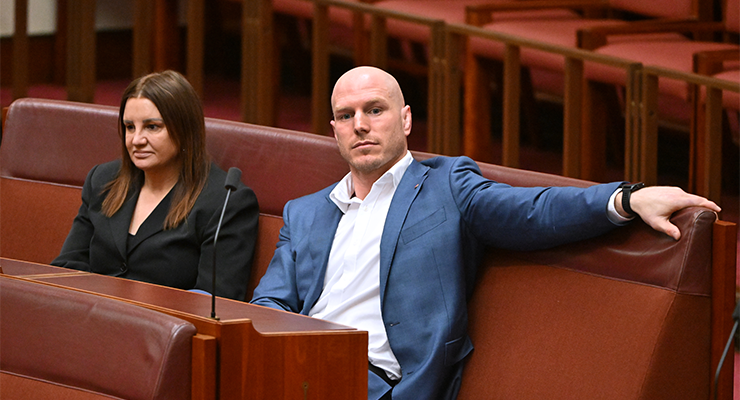
Multi-employer bargaining changes may have received the most attention as Labor gets closer to passing its industrial relations reforms, but there’s more to the package than that.
The Senate will sit an extra day on Friday and the House of Representatives will return the following day to pass the Senate’s amended version of the bill.
As Labor and a key crossbench senator reach a deal that will allow the bill to be passed, Crikey takes a look at some other key changes.
A new committee for support payments
An independent committee will review support payments and publish recommendations before each year’s budget. This was one of the main outcomes of Labor’s weekend deal with independent ACT Senator David Pocock.
Industrial relations expert and professor at the University of Adelaide’s law school Andrew Stewart said it would increase pressure on governments to “do something” about insufficient levels of social assistance.
“It’s clearly a very significant move,” he said. “But the question is still going to be: is the government going to be prepared to respond?”
Flexible work arrangements
Some of the “most important changes” in the bill, Stewart said, include the provision to help employees secure flexible work arrangements and limit the use of fixed-term contracts.
“Both are going to make a practical difference to the working conditions of Australians a lot faster than anything that might change in relation to bargaining,” he said.
Workers who request flexible conditions have little recourse if their employer says no: “The bill will give them the right to take a dispute to the Fair Work Commission over that matter. And we can certainly expect to see at least some disputes going to the tribunal over that.”
Sexual harassment reforms
The bill prevents sexual harassment “in connection with work”.
“This is in line with the [Kate] Jenkins review and the Respect at Work report,” Stewart said. “[There would be] important new remedies available from the Fair Work Commission in relation to sexual harassment. That’s going to be significant.”
Limiting pay secrecy
In a move that Stewart said would be important for managerial and professional workers in larger organisations, there will be greater pay transparency.
“Making it much harder for employers to maintain secrecy over pay arrangements is going to potentially do a lot to expose a lack of gender pay equity,” he said.
An ‘enforceable right’ around parental leave
Parents will have “an enforceable right to request unpaid parental leave”. This was a key outcome of another deal the government struck at the weekend, this time with the Greens.
Do you approve of the amendments Labor has made to its IR bill? Let us know by writing to letters@crikey.com.au. Please include your full name to be considered for publication. We reserve the right to edit for length and clarity.








IR has been a basket case for so long that these few shreds of decency actually look good.
Go Pocock!